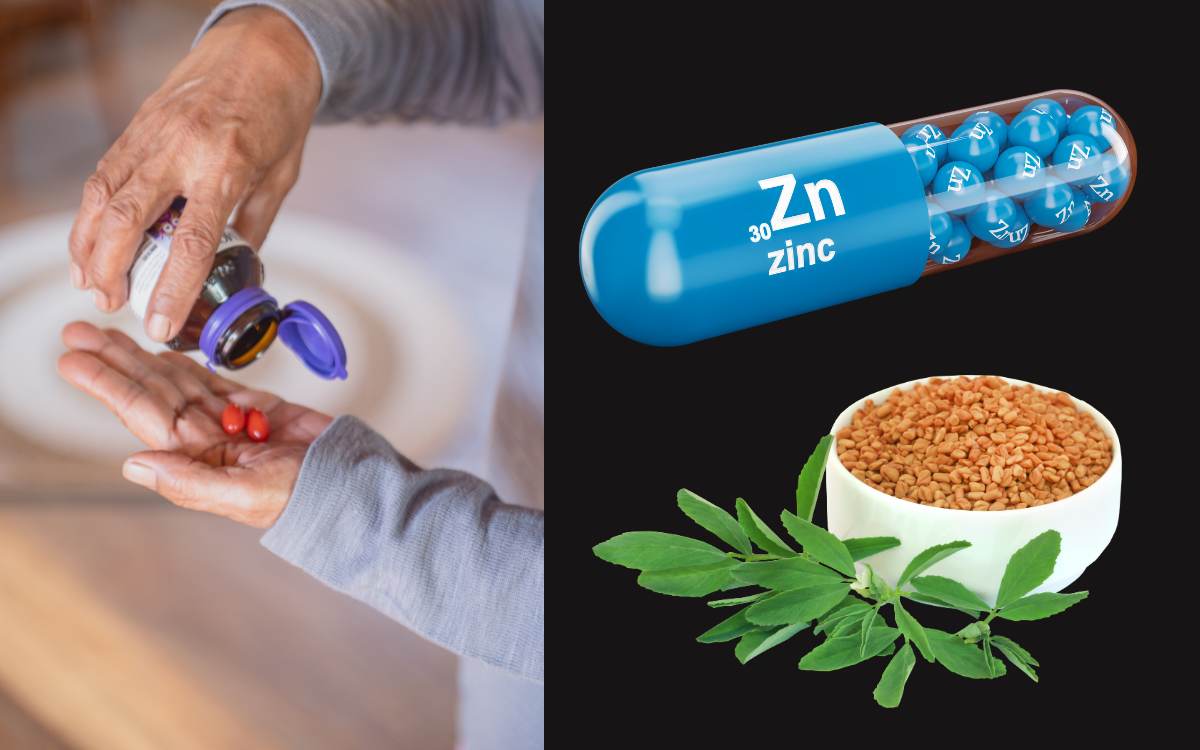As someone who’s crossed the 30-year milestone, I’ve noticed subtle changes in my body and mood that I never paid attention to in my younger days. It started with feeling less energized, occasional brain fog, and let’s be honest—wondering if I was losing a bit of the edge I once took for granted. At first, I brushed it off as part of life, but then I stumbled upon something that surprised me: testosterone.
Did you know that testosterone, the hormone most associated with vitality and masculinity, peaks during adolescence and early adulthood? After 30, it begins to decline by about 1% each year. That might not sound like much, but over time, it adds up. Low testosterone—often called “Low T”—doesn’t just affect energy and muscle tone. It can also increase the risk of issues like erectile dysfunction and even depression.
Naturally, I began exploring ways to give my testosterone levels a boost. I read about how lifestyle choices like exercise, diet, and even reducing alcohol intake can help. I also discovered a range of natural substances like fenugreek seed extracts and ashwagandha root that claim to support testosterone levels. But the deeper I dug, the more I realized the science behind these solutions is often mixed.
In this article, I’ll take you through supplements that have the strongest research backing their potential to increase testosterone, as well as natural methods you might not have considered. If you’ve ever wondered whether you can reclaim some of that lost vitality, you’re not alone—and you’re in the right place to start exploring.
How Testosterone Boosters Work
When I first heard about testosterone boosters, I was intrigued—and a bit skeptical. The idea of a supplement that could help reclaim energy, improve mood, or even give a boost to physical performance sounded almost too good to be true. Still, curiosity got the better of me, so I started digging into how these boosters actually work.
Testosterone boosters aim to increase levels of this critical hormone, which plays a huge role in everything from muscle growth to mood and even libido. They typically include ingredients that either directly raise testosterone levels or prevent the hormone from converting into estrogen. It sounds straightforward, right? But as I learned, it’s not that simple.
For context, a “normal” testosterone range depends on your age. For younger guys, it’s typically between 600 and 900 ng/dL, while older men should aim for levels between 500 and 800 ng/dL. If your levels dip below 300 ng/dL, you’re officially in the low testosterone range—a state that can bring on fatigue, low libido, and even feelings of depression. Trust me, I’ve been there on those sluggish days where I wondered if I was just “off” or if something deeper was going on.
The good news is that maintaining healthy testosterone levels can prevent many of these issues. The not-so-good news? The science behind many over-the-counter testosterone boosters is, well, shaky. Some nutrients and herbs, like fenugreek and ashwagandha, show promise, with benefits like better sperm health, enhanced sexual function, and improved exercise performance. But here’s the catch: only about 30% of people actually see a measurable increase in testosterone when using these supplements.
If you’re tempted to give boosters a try, here’s my take: they might help, but they aren’t a magic fix. Many of the popular products on the market mix a cocktail of herbal ingredients, and not all of them have solid research backing them. Worse, some could interact with medications or underlying health conditions.
Before you jump in, a word of advice—don’t self-diagnose low testosterone. It’s easy to think you know what’s wrong, but symptoms like fatigue or mood changes could stem from other issues, like hypothyroidism or even more serious conditions. That’s why I recommend talking to a healthcare professional if you’re concerned about your levels. Trust me, it’s better to get clarity than to guess.
In the meantime, if you’re looking for ways to naturally boost testosterone, there are safer, well-researched methods. And yes, I’ll share those too because, let’s face it, we’re all in this quest for vitality together.
Which Testosterone Boosters Actually Work?
When it comes to testosterone boosters, the buzz around ashwagandha caught my attention early on. I’m no stranger to stress—who isn’t? And the idea of an herb that could help manage stress and potentially boost testosterone sounded like a win-win. So, I decided to dig deeper into the research to see which Testosterone Boosters actually work.
Ashwagandha
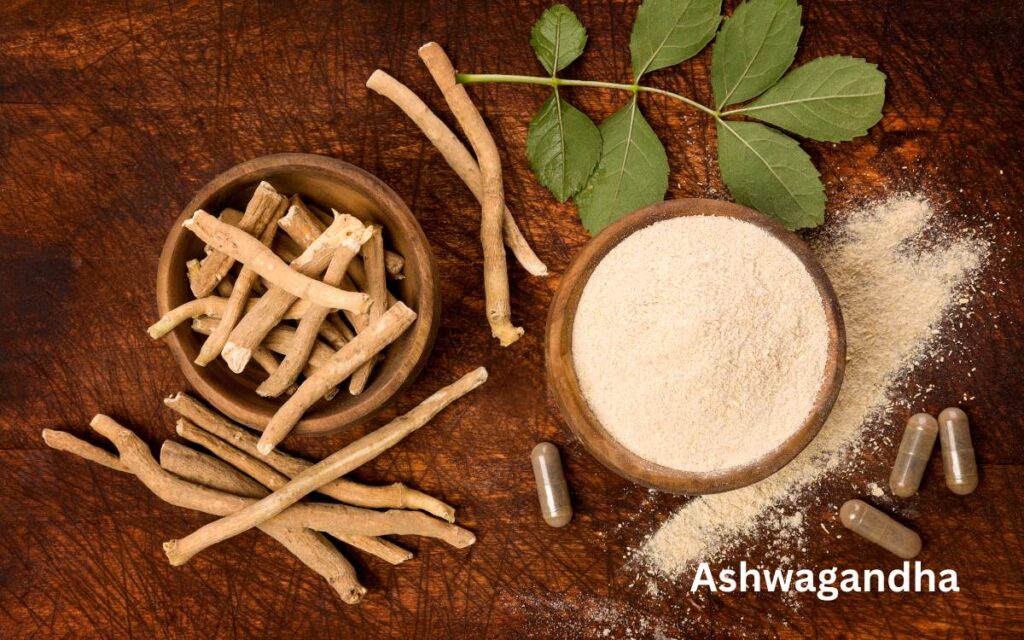
Ashwagandha is a staple in Ayurvedic medicine and is often labeled as an adaptogen, meaning it helps your body handle stress better. Given that stress is a known testosterone killer, this connection seemed promising. I came across a 2022 study that looked at 50 men with low sexual desire. After taking 600 mg of ashwagandha daily for eight weeks, participants reported better sexual well-being and higher testosterone levels compared to those taking a placebo.
But here’s the kicker: these men already had normal testosterone levels.
Another study from 2019 found similar results. Over eight weeks, 57 men who took 600 mg of ashwagandha extract saw their testosterone levels jump by nearly 15% and their DHEA-S (a hormone tied to testosterone production) rise by 18%. Impressive, right? But—and this is a big “but”—the effects didn’t last after participants stopped taking the herb.
Personally, I think ashwagandha could be worth trying if you’re looking for a natural way to support testosterone, especially if stress is a big factor in your life. It’s one of those supplements that seem to work best as part of a broader lifestyle strategy, like better sleep and regular exercise. But here’s the reality: it’s not a magic pill. You’d need to commit to taking it regularly to see and maintain any benefits.
What’s frustrating is that even researchers aren’t entirely sure how ashwagandha supports testosterone and DHEA-S. The science is still catching up, and while the early studies are promising, they’re not definitive.
For me, the takeaway is this: if you’re interested in ashwagandha, start with realistic expectations. It’s not going to turn back the clock or transform your testosterone overnight. But as part of a balanced approach to health, it might give you a small but meaningful edge—especially if stress is weighing you down.
Would I recommend it?
If you’re curious and don’t mind sticking with it, sure. Just pair it with healthy habits, and don’t skip the conversation with your doctor if you’re unsure whether it’s right for you.
Fenugreek
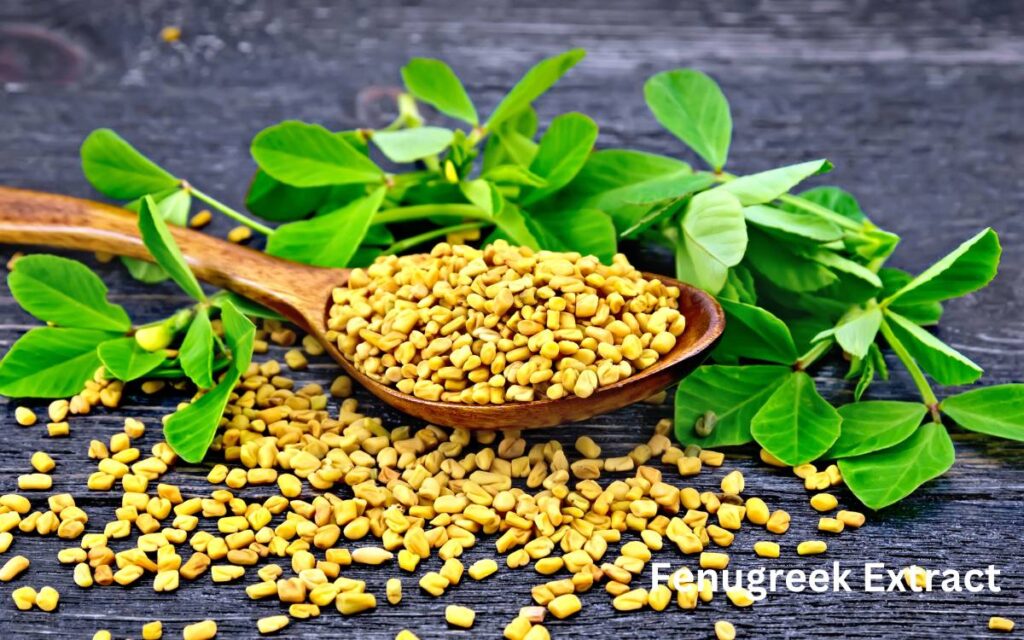
When I first heard about fenugreek, I thought of it as a kitchen staple—something you toss into curries to add flavor. But when I started learning about its potential to boost testosterone, I was intrigued. Could an herb from my spice rack really help with energy, mood, and even testosterone levels?
Fenugreek is more than just a cooking ingredient. In alternative medicine, it’s been used for everything from digestion to supporting hormonal health. And while the research is still developing, there’s some solid evidence suggesting it could help with testosterone.
Take a 2016 study, for example. Men who took 600 mg of fenugreek extract daily for 12 weeks saw significant increases in testosterone levels and improvements in sexual function compared to those on a placebo. Another study in 2017 showed even more promising results: 90% of participants experienced up to a 46% increase in free testosterone after 12 weeks on 500 mg of fenugreek extract daily. Plus, many of them reported feeling more alert and in better moods.
I gave fenugreek a try myself out of curiosity. Admittedly, I didn’t stick with it for 12 weeks—it’s hard to stay consistent with supplements—but I did notice a small boost in energy during the weeks I took it. Maybe it was the placebo effect, or maybe it was the real deal. Either way, I didn’t hate it.
What’s interesting about fenugreek is how it seems to work. Researchers think it may block enzymes that convert testosterone into other hormones, keeping more of the good stuff in your system. It might also slow down the breakdown of testosterone, giving it a longer-lasting effect.
That said, there’s a catch: the research, while promising, is still limited. Most studies are relatively small or short-term, so we don’t know for sure how fenugreek holds up in the long run.
Would I recommend it? If you’re curious and want to give it a try, fenugreek seems like a low-risk option, especially if you enjoy natural remedies. Just be realistic about your expectations. It’s not a magic fix, but it might give you a nudge in the right direction. And hey, worst-case scenario, you’ve got an herb you can add to your next curry.
If you’re considering fenugreek for testosterone support, it’s always smart to talk to a healthcare professional first, especially if you’re taking other medications or have existing health conditions. But for me, it was an interesting experiment—and I might just try it again.
Zinc
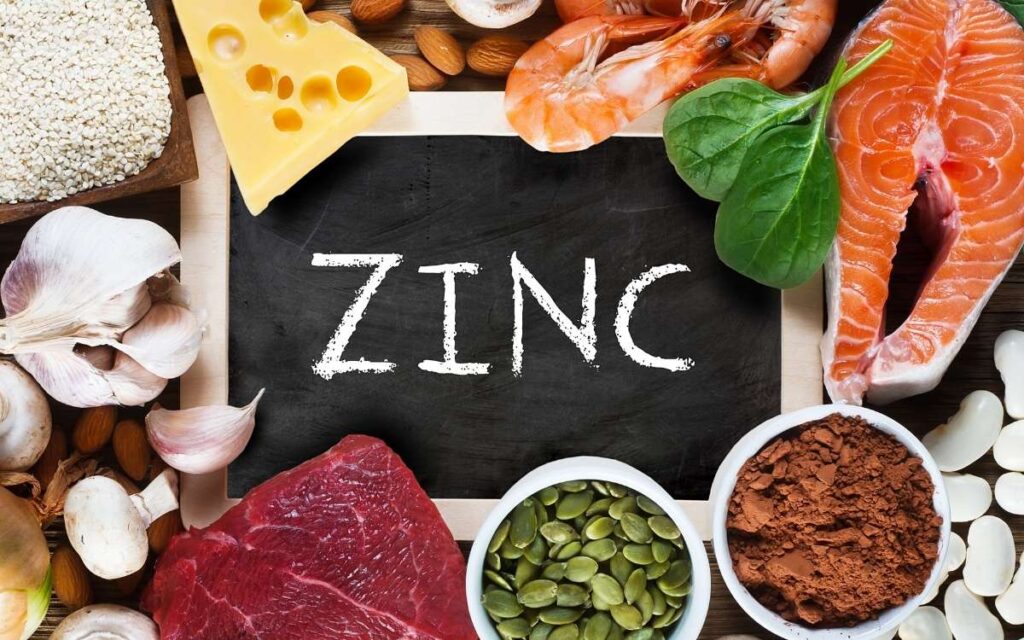
When I think about zinc, my mind immediately goes to immune health. It’s that go-to mineral everyone seems to reach for when a cold is coming on. But as I’ve learned, zinc has a lot more going for it—especially when it comes to testosterone and overall sexual health.
Zinc is an essential mineral that your body relies on for over 100 different chemical processes. That alone makes it pretty impressive. But its connection to testosterone really caught my attention. I’ll admit, I didn’t think much about zinc in the past, other than making sure I had enough in my diet. Now, I’m looking at it differently.
Research backs up zinc’s role in testosterone production. A 2023 review, for example, analyzed eight studies and found a clear pattern: low zinc levels were tied to lower testosterone, while higher levels of zinc were associated with higher testosterone levels. Even better, zinc supplementation was shown to improve testosterone levels.
It’s not just about men, either. A 2021 study involving postmenopausal women with low zinc levels found that supplementation boosted their testosterone and even improved sexual function. That was a bit of a surprise to me—I didn’t realize zinc could have such a broad impact.
For me, zinc is one of those foundational supplements that seems like a no-brainer if you’re looking to support testosterone naturally. It’s not flashy, but it’s effective. I started paying more attention to my zinc intake a while back, mostly through diet—things like shellfish, nuts, and seeds—but I’ve also experimented with supplements when I felt like my energy or focus was lagging.
Here’s my take: zinc isn’t going to give you a dramatic, overnight boost in testosterone. But if you’re deficient, it could make a noticeable difference. Plus, it’s relatively safe and easy to incorporate, whether through food or supplements.
One thing I’d suggest is getting your zinc levels checked if you’re thinking about supplementation. Too much zinc can cause problems, like interfering with other nutrients or causing nausea. But when used correctly, it feels like a solid way to support overall health—and maybe give your testosterone a gentle push in the right direction.
For me, zinc has become part of my wellness routine, and I’ve noticed subtle benefits over time. If you’re curious about it, I’d say it’s definitely worth exploring. Just keep your expectations realistic and focus on balance. After all, health is a marathon, not a sprint.
Testosil
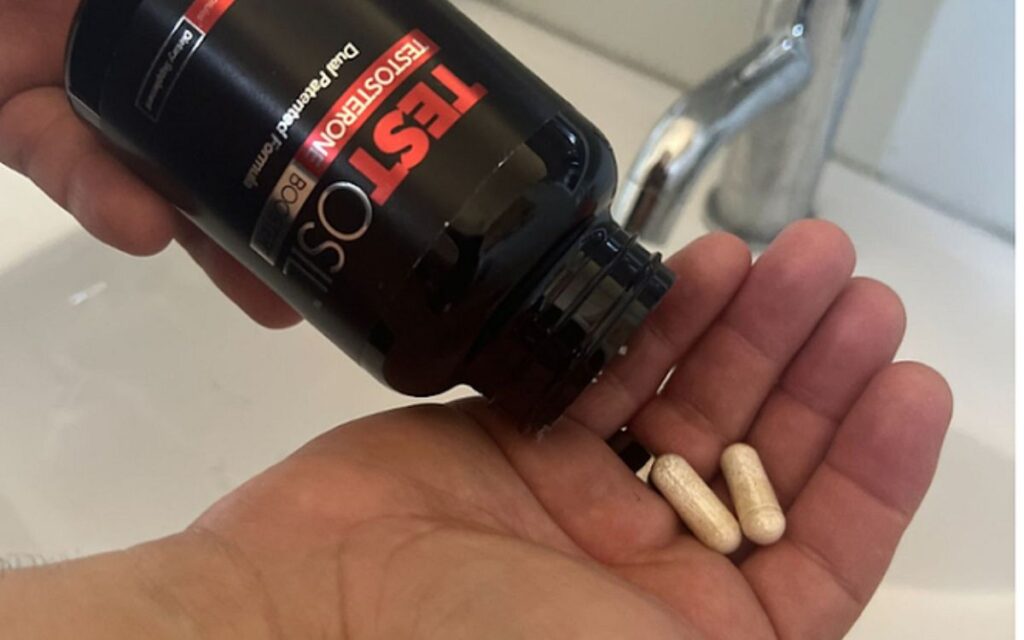
If you’ve been juggling different supplements like zinc, fenugreek, and ashwagandha to boost your testosterone, I get it—it’s a lot to keep track of. When I came across Testosil, I thought, “Finally, everything in one bottle!”
When I first heard about it, I was intrigued but cautious. There’s no shortage of testosterone boosters out there promising miracles, but Testosil seemed to have something different: a thoughtful blend of science-backed ingredients, all aimed at naturally supporting testosterone levels.
What’s Inside Testosil?
The star ingredient is KSM-66® Ashwagandha, a well-researched adaptogen known for its ability to boost testosterone, enhance muscle strength, and lower stress. I’d already experienced the calming effects of ashwagandha before, so I was curious about how it would perform in a formula specifically designed for testosterone.
But Testosil doesn’t stop there. It also includes:
- Fenugreek: Known for supporting healthy testosterone levels and improving sexual function.
- Zinc: Essential for hormone production and proven to enhance testosterone, especially if you’re deficient.
- ZMA (Zinc, Magnesium, and Vitamin B6): A trio often used by athletes for muscle recovery and hormone health.
- D-Aspartic Acid: Popular for stimulating testosterone production.
- AstraGin®: A patented compound that improves nutrient absorption, ensuring your body actually benefits from everything in the capsule.
For me, this formula felt like a well-rounded approach. Instead of buying separate supplements and trying to piece together a regimen, Testosil simplifies it all.
Who’s Behind Testosil?
Knowing who makes a supplement is a big deal for me. Testosil is manufactured by Leading Edge Health, a company with over 20 years in the wellness space. They’re known for creating science-backed, high-quality products, so that gave me some extra confidence.
Plus, their supplements are made in FDA-registered and cGMP-certified facilities in the U.S., which is a reassuring stamp of quality.
What’s It Like to Use Testosil?
Here’s what I appreciated: Testosil isn’t a “magic pill” promising unrealistic overnight changes. You’ll need to pair it with a good diet, regular exercise, and stress management to see results. But that’s exactly why I found it credible—it’s designed to work with your lifestyle, not replace the basics.
The pricing is pretty reasonable too. A month’s supply costs $59.99, but the value gets better with the bundles. The three-month supply comes with two bonus months, making it the most cost-effective option if you’re ready to commit.
Is Testosil Worth It?
In my opinion, Testosil is a great option if you’re looking for an all-in-one testosterone support supplement. It takes the guesswork out of mixing and matching ingredients and offers the convenience of everything in one bottle.
For me, it’s become a part of my daily routine, and while the changes aren’t overnight, I’ve noticed a gradual boost in energy and focus. If you’re ready to put in the work and give your body the right tools, Testosil might just be what you’re looking for.

